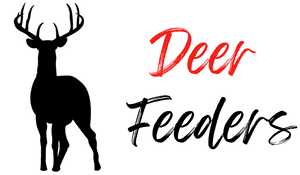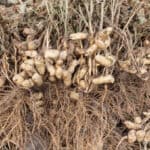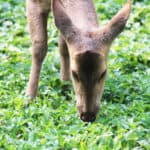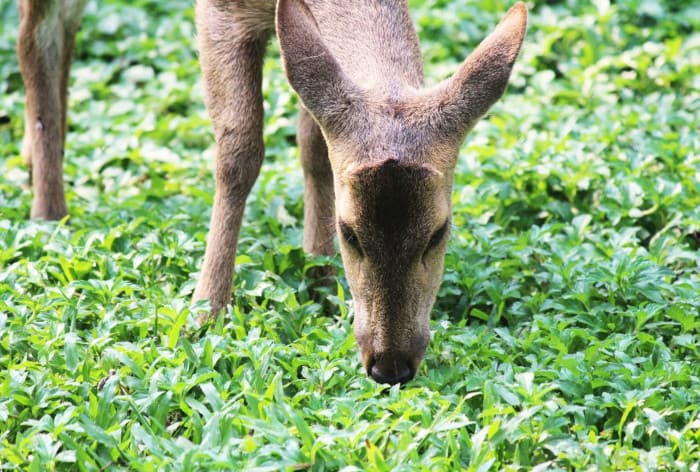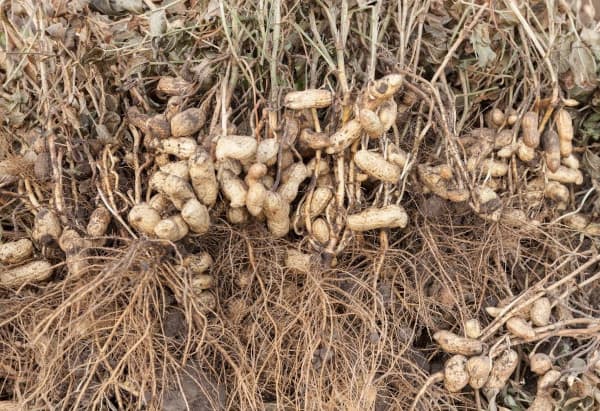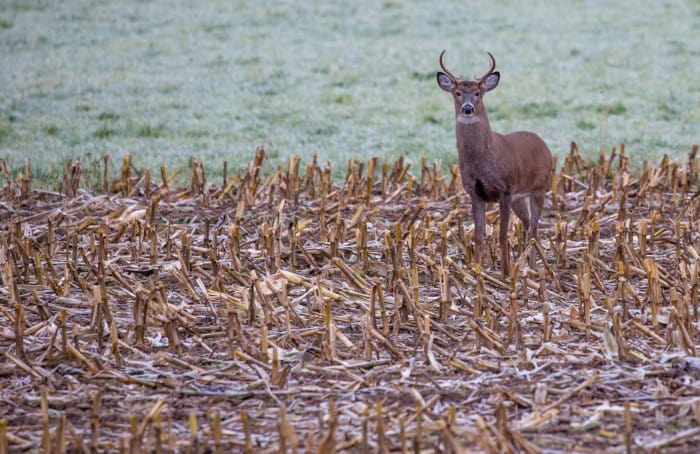Whitetail deer have a diverse diet that includes food from several different natural and manmade sources. Since their diet is so diverse, there are always plenty of questions surrounding what deer can and cannot eat. In this post, I’ll try to answer the question: do deer eat barley?
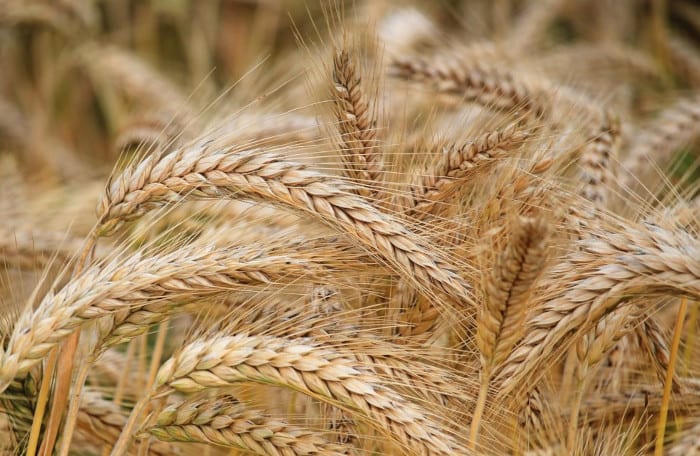
Key Takeaways
– Barley is a good source of nutrition for deer, providing them with essential vitamins, minerals, fiber, and protein.
– Feeding barley to deer can promote their overall health, winter survival, and contribute to weight gain and antler growth.
– Barley can be fed to deer by pelleting it or mixing it with other food sources, and it is recommended to start feeding around six months old.
– While most deer are likely to enjoy barley, there may be safety concerns due to potential stomach irritation from hulls, so limiting intake or avoiding it may be necessary.
What is Barley?
Barley is a type of cereal grain that belongs to the grass family. It is one of the oldest cultivated grain crops and has been used for thousands of years as a staple food in various parts of the world.
Barley is primarily grown for its seeds, which can be processed into various products such as flour, malt, and pearl barley. It has a nutty flavor and a chewy texture.
Barley is commonly used in the production:
- Source of food for domesticated animals.
- Fermenting product used in beer and other alcohols.
- Cooking component used in soups, breads, and stews.
It is also highly nutritious, rich in fiber, vitamins, minerals, and antioxidants.
As much as 70% of the barely grown in the world is used as feed for cows, goats, etc.
Within the barley family, there are 60 plus barley variants available, with more coming each year.
Will Deer Eat Barley as a Food Source?
Nearly all species of deer will consume barley as it serves as a good source of nutrition, aids in detoxification, and provides roughage for digestion. Barley is high in fiber and protein, making it a valuable food resource for deer. It also contains essential vitamins and minerals that promote overall health and winter survival.
Additionally, the impact of barley on deer population dynamics should be considered. Planting barley can attract deer, which may lead to an increase in their population. Therefore, it is worthwhile to consult professionals and consider the specific dietary needs of deer before making any changes.
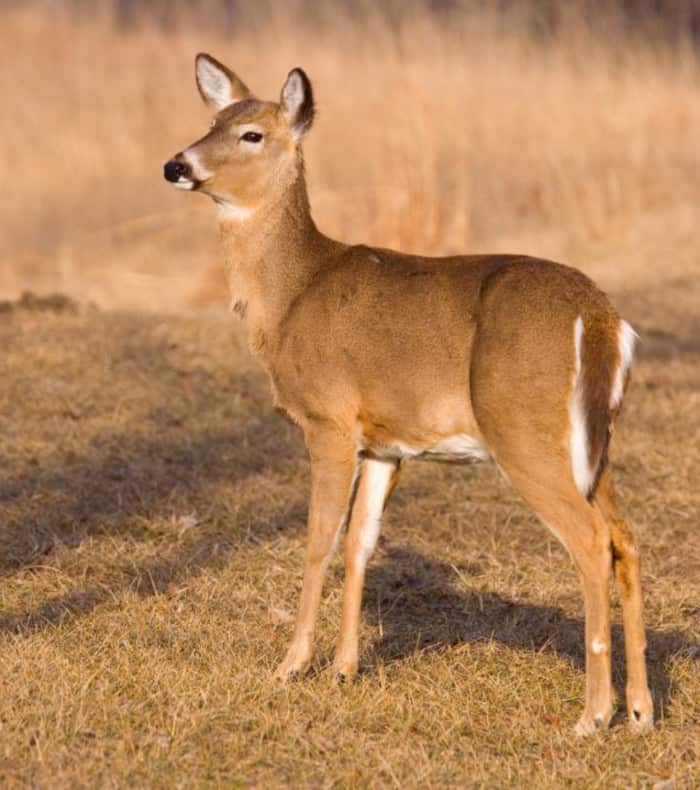
Barley Food Plots
Typically, barley is presented to deer through one of two methods:
Purchasing raw barley commercially and feeding it to the deer
Typically, I see this situation when animal fans try to feed the whitetails in their backyard and consider barley as a deer food. If you plan on taking this approach, consider buying unprocessed barley, which hasn’t been processed for human consumption.
The barley processing operation removes some of the critical nutrients for deer, so unprocessed is always a better option for whitetails.
Growing a barley field
The second and most common way to feed deer barley is through a food plot. In that scenario, a deer hunter or land manager will plant barley in a food plot as a late season source of food when food sources are scarce. Deer will eat the young barley as soon as it germinates,
Nutritional Benefits of Barley
Barley offers a range of nutritional benefits for wildlife, including high fiber and protein content and essential vitamins and minerals. These benefits make barley a valuable food source for deer, contributing to their overall health and winter survival.
The high fiber content in barley aids in digestion and provides roughage for deer, promoting healthy gut function. Additionally, the protein in barley supports muscle development and growth, which is essential for deer, especially during the antler growth period.
Barley’s impact on the deer population extends beyond nutrition, as it can also play a role in habitat conservation. Planting barley can attract deer to specific areas, benefiting wildlife management and conservation efforts.
By providing a nutritious food source, barley can help maintain a stable and healthy deer population while promoting habitat conservation.
Downsides of Barley for Deer
Safety concerns and prevention measures should be considered when incorporating barley into a deer’s diet. Although barley is generally beneficial for deer nutrition, there are potential safety concerns to be aware of.
The hulls of barley can cause stomach irritation in deer, so it is crucial to monitor their intake and consider limiting or avoiding it if necessary.
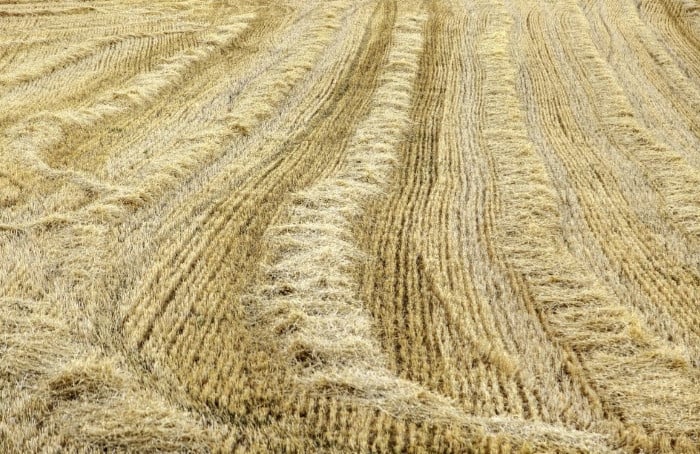
Frequently Asked Questions
Here are some commonly asked questions associated with deer consuming barley:
Can barley be harmful to deer if they consume too much?
Excessive barley consumption by whitetails can pose potential risks. It may lead to stomach irritation and digestive issues due to the presence of hulls. Monitoring and limiting intake is advised to ensure deer health.
Are there any specific health benefits that barley provides for deer during winter?
Barley consumption by deer during winter can have specific health benefits. It can provide essential nutrients, energy, and promote overall health, potentially influencing deer behavior and population dynamics.
How does feeding barley to deer affect their overall body condition and antler growth?
Feeding barley to deer positively affects their body condition and antler growth. Barley provides essential nutrients and energy, promoting overall health and winter survival. It also increases body weight gain and enhances antler growth. No evidence suggests an impact on deer reproductive health or barley’s role in deer population management.
Can barley be a suitable substitute for other food sources in a deer’s diet?
Barley is not part of a deer’s natural diet but a potential food source provided by man. However, barley can be a suitable substitute for other food sources in a deer’s diet. Its consumption can impact deer population dynamics by providing necessary nutrition and promoting overall health, leading to potential increases in body condition and antler growth.
Are there any negative effects on deer if they consume barley with hulls?
Adverse effects of hull consumption by deer include potential stomach irritation. It is recommended to limit intake or avoid feeding barley with hulls.
How do I keep deer from eating my barley crops?
You can try using deer repellents or fencing off the area to prevent deer from eating your barley crops. Additionally, planting other crops that deer are less likely to consume can help divert their attention away from the barley. However, be forewarned, trying to keep deer out of a barley field is similar to trying to keep squirrels out of a bird feeder. It’s an uphill battle.
Can deer cause significant damage to barley fields?
Yes, deer can cause significant damage to barley fields. They may trample the plants, consume a large portion of the crop, or even destroy the entire field if left unchecked.
Will deer eat barley straw?
Deer may eat barley straw if they cannot find other food sources. However, straw is not a preferred food for deer, and they are more likely to consume the actual barley grain if available.
What is the best time to plant barley to minimize deer damage?
A: Planting barley early in the season, especially before the rutting period when deer are more active and searching for available food sources, can help minimize deer damage to the crops. However, it is worth noting that deer can still consume barley at any stage of its growth.
